| Course Date | Nairobi Training fees: | Mombasa Training fees: | Kigali Training fees: | Live Online fee: | Register for Onsite in Nairobi, Mombasa and Kigali |
Register for online training |
|---|---|---|---|---|---|---|
| 12/05/2025 To 16/05/2025 | 1,500 USD | 1,700 USD | 3,000 USD | 900 USD | Register for Onsite | Register for Online |
| 09/06/2025 To 13/06/2025 | 1,500 USD | 1,700 USD | 3,000 USD | 900 USD | Register for Onsite | Register for Online |
| 07/07/2025 To 11/07/2025 | 1,500 USD | 1,700 USD | 3,000 USD | 900 USD | Register for Onsite | Register for Online |
| 11/08/2025 To 15/08/2025 | 1,500 USD | 1,700 USD | 3,000 USD | 900 USD | Register for Onsite | Register for Online |
| 08/09/2025 To 12/09/2025 | 1,500 USD | 1,700 USD | 3,000 USD | 900 USD | Register for Onsite | Register for Online |
| 13/10/2025 To 17/10/2025 | 1,500 USD | 1,700 USD | 3,000 USD | 900 USD | Register for Onsite | Register for Online |
| 10/11/2025 To 14/11/2025 | 1,500 USD | 1,700 USD | 3,000 USD | 900 USD | Register for Onsite | Register for Online |
| 15/12/2025 To 19/12/2025 | 1,500 USD | 1,700 USD | 3,000 USD | 900 USD | Register for Onsite | Register for Online |
Introduction
In Africa, close to 70% of the population rely on agriculture as a source of their livelihoods. The sector contributes up to 23% to the GDP in most of the African countries and hence remains critical to local and regional economies. It is the basis for food security and an important source of employment, particularly for women who provide much of labor. Despite the women contribution to the sector, their participation is limited by factors including inequitable access to agricultural inputs, including family labour, high-yield crops, pesticides, and fertilizer, legal and cultural status, exclusion from alternative employment options and inheritance laws. In the spirit of achieving the aspiration of vision 2030 of leaving no one behind and particularly women, there is need to understand through gender analysis the extent to which women are included in the agricultural sector. Gender analysis provides information to integrate a gender perspective into policies, programmes and projects. To add on, conducting a gender analysis allows for the development of interventions that address gender inequalities and meet the different needs of women and men. This 5 days course will equip participants with knowledge about specific set of frameworks and methods for participants to use in order to integrate gender components into their agricultural projects and programs. Participants will also gain gender analysis skills through effective and systematic analysis of contexts and also be able to plan development from a gender equality perspective.
Duration
5 days
Who should attend?
o Gender advisers in NGOs and UN agencies,
o Development practitioners with an interest in gender mainstreaming
Course objectives
By the end of the training, participants will:
o Understand gender mainstreaming concepts, sex-disaggregated agriculture data and indicators;
o Plan and conduct gender surveys on agriculture
o Record and analyse sex-disaggregated raw data;
o Be capable of integrating a gender component and conducting gender analysis in agricultural projects, programmes and policies;
o Be able to use evidence in the policy-making process;
o Appreciate the interlinkages among SDG 5 (gender equality) and SDG 1 and 2 (ending poverty and ending hunger) and other related SDGs;
o Have explored the intrinsic relationship between gender and development
o Be able to integrate gender into contextual analysis, and to use gender analysis frameworks effectively
o Be better equipped to integrate gender into strategic and operational planning
o Have acquired methods of creating gender awareness within development practice.
Course content
Module 1: Mainstreaming gender in agricultural sector
o Basic gender concepts
o Gender roles and relations
o Intersectionality
o Principles and rules of gender analysis
o Basics of gender analysis
o Principles of gender analysis in survey research
o Matrix scoring and the Sustainable Intensification Assessment Framework
o Gender transformative approach
o Features of gender transformative research
o Participation and collaboration
o Critical reflection
o Intersectionality
o Mixed methods
Module 2: Mainstreaming gender into agriculture to achieve the 2030 Agenda (concepts of gender, gender analysis, gender mainstreaming and 2030 agenda).
o Conceptual exploration of gender and development terms
o Gender analysis: Tools and frameworks
o Analysing gender and: (according to participant interest)
o Strategic planning and gender
o Operational planning and gender
Module 3: Sex-disaggregated agricultural data: why are they crucial?
o Gender-responsive agricultural projects assessment, monitoring and reporting.
o Gender-responsive agriculture Indicators
o From theory to practice: Planning and conducting agender survey.
o Linking data to information: statistical foundations.
o From sex-disaggregated agriculture data to evidence-based policies
Module 4: Steps in carrying out gender analysis
o Collecting available data.
o Identifying gender differences and the underlying causes of gender inequalities.
o Informing policies, programmes and projects.
o Gender analysis frameworks
o Harvard Analytical Framework/ Gender Roles Framework,
o Moser conceptual framework for gender analysis and planning
o Levy conceptual framework/ web of institutionalisation,
o Capacities and vulnerabilities approach (CVA)
o Social relations approach
o Gender analysis matrix framework
o The 4R method
Module 5: Analysing qualitative gender data using NVIVO
Introduction to NVivo
o NVivo Key terms
o NVivo interface
o NVivo workspace
o Use of NVivo ribbons
o Module 2: Project Management
o NVivo Projects
o Creating new projects
o Merging, importing and exporting projects
o Managing projects
o Working with different data sources
o Nodes in NVivo
o Theme codes
o Case nodes
o Relationships nodes
o Node matrices
Classifications
o Source classifications
o Case classifications
o Node classifications
Coding and Analysis
o Coding
o Data-driven vs theory-driven coding
o Analytic coding
o Descriptive coding
o Thematic coding
o Tree coding
o Thematic Analysis using NVivo
o Organize, store and retrieve data
o Cluster sources based on the words they contain
o Text searches and word counts through word frequency queries.
o Examine themes and structure in your content
Memos Annotations and Links
o Linked memos
o Adding annotation to selected content
o See also link
Queries using NVivo
o Queries for textual analysis
o Queries for exploring coding
Visualizing NVivo project
o Display data in charts
o Creating models and graphs to visualize connections
o Tree maps and cluster analysis diagrams
Training Approach
This course will be delivered by our skilled trainers who have vast knowledge and experience as expert professionals in the fields. The course is taught in English and through a mix of theory, practical activities, group discussion and case studies. Course manuals and additional training materials will be provided to the participants upon completion of the training.
Tailor-Made Course
This course can also be tailor-made to meet organization requirement. For further inquiries, please contact us on: Email: training@upskilldevelopment.com Tel: +254 721 331 808
Training Venue
The training will be held at our Upskill Training Centre. We also offer training for a group at requested location all over the world. The course fee covers the course tuition, training materials, two break refreshments, and buffet lunch.
Visa application, travel expenses, airport transfers, dinners, accommodation, insurance, and other personal expenses are catered by the participant
Certification
Participants will be issued with Upskill certificate upon completion of this course.
Airport Pickup and Accommodation
Airport pickup and accommodation is arranged upon request. For booking contact our Training Coordinator through Email: training@upskilldevelopment.com, +254 721 331 808
Terms of Payment: Unless otherwise agreed between the two parties payment of the course fee should be done 3 working days before commencement of the training so as to enable us to prepare better
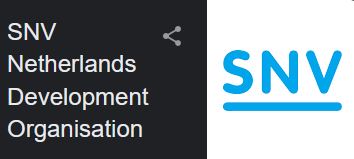

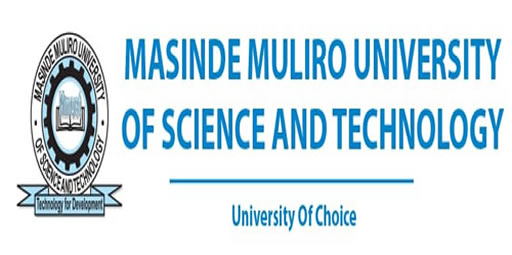
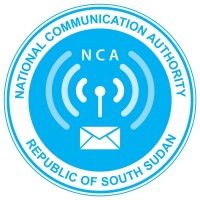
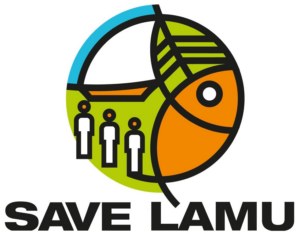


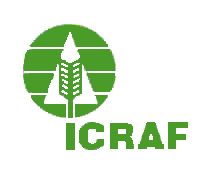
We support the development of a skilled and confident workforce to meet the changing demands of growing sectors by offering the best possible training to enable them to fulfil learning goals.
Make a Mark in You Day to Day work